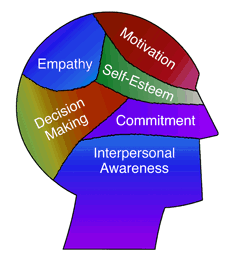
Years ago, Harvard Business Review published a portion of W.C.H. Prentice's 1961 article about understanding leadership. Though dated, its insights remain spot on and prophetic - and he gets straight to the salient point upfront by offering that 'leaders succeed when they learn two basic lessons: people are complex, and different'. He further suggests:
His unique achievement is a human and social one which stems from his understanding of his fellow workers and the relationship of their individual goals to the group goal that he must carry out."

I can be quite straightforward, and certainly appreciate the consequences of this - criticism, retaliation, mischaracterisation. However, I also recognise that too much of that approach, particularly if rude or lacking in tact, can result in one-dimensionality and limited effectiveness. Thus, the community columnist is entitled to her opinion and vent, but there is cognitive dissonance and confirmation bias in her dystopian-saviour scenario which undermined her message.
The charitable actions described in the column are a reactive contribution. A proactive one might be efforts to improve conditions so that residents can afford to purchase space heaters that don’t malfunction and kill them, such as improving economic and educational opportunities. We can treat symptoms of problems, their essence - or both. Teaching a man to fish has different consequences than bringing him meals. Is one better or more necessary than the other? It depends. But in failing to acknowledge the benefit of both in the 'doer' ecosystem, the columnist missed an opportunity to mobilise a community. Instead, she squandered it on prose which attempted to manipulate a situation to her advantage, create a 'problem solvers' fiefdom, and seek the very acknowledgment she claimed not to need. Ultimately, this contradictory misfire weakened her credibility.
Maslow's Hammer (also known as Law of the Instrument or Law of the Hammer) is the concept of over-reliance on a familiar modus operandi. "If all you have is a hammer, everything looks like a nail" is a common quote to describe this tendency. Problem-solving is a critical and necessary tool to have in one's box, but this point of reference generally depends on the initial actions and failures of someone else, or a mindset of waiting for something to go wrong before engaging. There can be much lower risk in fixing mistakes than being the architect, and easier to throw stones at a house than to build one.
Are there valid reasons to separate oneself from the pack and move forward? Indeed. Many of us do it often because we prefer to get things done, and there are armchair critics or analysis paralysis environments that hinder. Is there nobility in civic service, elected or otherwise? Absolutely. However, the approach by the columnist looks less like altruism, and begins to appear as if preying on tragedies, the downtrodden, or 'problems to solve' is more of a publicity stunt. Either way, it's a missed opportunity to exhibit true leadership.

 RSS Feed
RSS Feed
